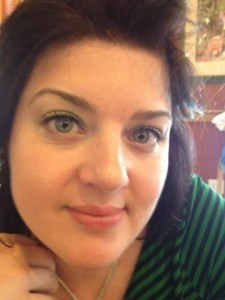Change is something that we fear
And yet we’re happy when it’s here
It may rob you of all that’s dear
But is often more positive than it may appear
Progress is another game
That’s just change by another name
If we open up our heart and mind
We’ll know treasures of a different kind
The word change is often something that people tend to shy away from, partly because it carries an air of uncertainty, but also because it is associated with a great deal of hard work! Sometimes we know that change has to come and that we have to proactively change something and in such cases we may feel as if we hold the reins, but there are also times when change is thrust upon us and it is up to us what we make of it.
We may struggle to accept the fact that we are capable of adapting to many different situations because, as I wrote above, change scares us. But sometimes it can help us to reap unexpected rewards. In the case of many of the people reading this (myself included), change was thrust upon us in the form of a chronic illness: thyroid disease. Many of us were uncertain what we were dealing with upon our diagnosis and once we were finally diagnosed we were angry and resisted this change – Why me? This isn’t fair! What now?
But when we get sick we have to go through a period of acceptance and realize that we have been presented with a challenge to overcome, whether we like it or not. While faced with these uncertainties and fears, it is okay to mourn the passing of our good health and it is also alright to be emotional and angry – in fact, letting out our emotions and possibly talking to others in the same situation can help us to move on and proactively tackle the life cards we have been dealt. Chronic illness is definitely about acceptance and it’s all about redefining what “getting better” means to you because sometimes it is about the acceptance of realizing that when you are better you may still be changed and different, but learning to live with this and love yourself regardless.
As you will know, the thyroid resembles the shape of a butterfly and, like a chrysalis chronic illness, forces us to go through a transformation. Make no mistake: There will be roadblocks along the way. There will be times when you stumble and fall and feel like you are never going to get up again, but you will and you will probably be wiser and stronger for it, as well as better able to deal with the next roadblock that comes along, even if at times those roadblocks start to look awfully familiar!
In my poem above, I doubt that any of us would agree with the second line – nobody is going to welcome chronic illness with open arms. We’d prefer to tell it to “piss off!”, but down the line some of us will look back and be happy that we have come this far. Many have commented that their diagnosis has improved their life by making them more aware of their health, making them more empathic towards others and allowing them to make a whole host of wonderful friends. Indeed, these points resonate with me, particularly the last one. We moved back to the US in December of 2011 and since that time we’ve been taking the opportunity to meet up with many of my online thyroid friends – it’s been a blast and has meant that we’ve felt a lot less alone than we would have otherwise. Pre thyroid diagnosis I knew little to nothing about health and medicine and now I feel much more in control of my own body, even if it doesn’t always cooperate!
Change is a very emotive word that can come about in a variety of ways. Many people argue that without change there would be no progress and yet others are afraid of the word and avoid it as much as possible. Some people however don’t have this choice and find that change is thrust upon them – through a change in lifestyle due to a necessary move; by splitting up with or losing a loved one; by losing a job and being forced to change careers; by falling ill and having to take time out to recuperate and ultimately re-evalute our life and what we want from it; by discovering an unexpected gift and feeling the need to develop this; by welcoming a new member to our family …
I personally have experienced all these situations and more and the one lesson I have learned time and again is this: it is not about the change itself; it is about one’s attitude to said change and how you deal with it. Positivity and optimism (even when it might seem difficult) can go a long way to turning even the most negative of changes into something positive, albeit at first glance these changes might make us feel as if we are doomed.
Moving, as scary and trepidating as it might seem, particularly if the move is not a voluntary one, can be seen as an opportunity to explore a new place and broaden our horizons. My husband and I lived in Germany for many years, a country where we rarely felt at home, but looking back I believe that the majority of expats (us included) would say that they don’t regret living abroad because it truly broadens your horizons and your intercultural skills.
I can remember splitting up with past partners as I recall the deep pain I experienced by severing that bond, but I personally believe that if a relationship is meant to be both parties will either mutually make the effort to work it out, e.g. through marital counseling, taking a time out and then resuming the relationship or, alternatively, if it is not meant to be, you will move on to a new and more harmonious beginning. When I broke up with one of my exes M, it was an extremely painful time, but looking back it was also liberating because I was forced to come to the painful realization that we were not right together and I was finally liberated to be myself rather than someone he thought he could mold me into. I was ultimately free to go ahead and live my life and eventually meet my husband Corey who truly accepts me for who I am.
When it comes to jobs, about 10 years ago I did an internship in PR and marketing and was unfairly bullied and consequently ended up prematurely quitting my position. I was in a panic as to what would come next and how on earth I was going to drum up enough money to pay my rent in a foreign country. But within just a short time, what seemed a curse had turned into a blessing. During my internship, I had realized that I was a talented translator and so after I left that company that is the career I ended up pursuing and was soon earning many times more than I had been at the poorly paid, exploitative internship and felt much more appreciated and fulfilled.
A few years after that, thyroid disease forced me to slow down and smell the daisies. Since I was a little girl, I’ve had a passion for writing, but in recent years have had trouble coming up with inspiration for things to write about. I realized a long time ago that I like helping others, but how to go about it? When I fell ill, I was given the answer. I was given the opportunity to turn a negative experience into a positive one by sharing my experiences with others in my situation and putting pen to paper was a cathartic and therapeutic experience that taught me about how I was feeling and also enabled me to mentally heal and get past certain blocks that had previously hindered my path.
These are just a few examples of how something that is initially perceived as a negative change can in fact be turned into a positive change and how we have the power in our own hands to do this! It requires us to believe in ourselves and realize that sometimes we have to expect the unexpected. As human beings, we are very skilled at adaptation and transformation – like Andersen’s ugly ducking (who was modeled on himself, by the way), we do have the power to become a shining swan; like Hank Morgan, Mark Twain’s Connecticut Yankee in King Arthur’s Court, we can adapt to the craziest of situations and as a chrysalis we can turn into a butterfly – a thyroid butterfly in all its gorgeous colors! ThyroidChange itself is a prime example of how a few people have the power to inspire others by taking a dream and making it happen. As weak as each of us may feel at times, together we are a powerful resource and support for each other. There is no need for us to accept the status quo because, as others before us have proven, we have the power to change it if we only try.
About the author: A long-time writer and blogger, Sarah was diagnosed with Hashimoto’s thyroiditis in August 2009. This inspired her to use her writing skills to help and encourage others in similar situations. She writes regularly for ThyroidChange.
This article was posted previously on ThyroidChange and re-posted with permission.













